Yasmin Daswani – Cricket player and incoming legal trainee – on playing sports with her mother and the importance of role models
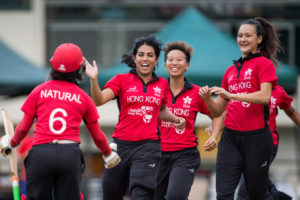
Yasmin Daswani is a batsman for the Hong Kong Cricket Club and a member of the Hong Kong National Women’s Cricket Team. Having played on the Under 19’s since she was 12 years old, Yasmin has been fitting in her academic studies alongside her cricket training.
Yasmin secured a legal training contract with a law firm in London after completing her legal studies in 2016, and deferred it in order to represent Hong Kong in the Asia Region T20 Qualifiers.
Wise beyond her years, Yasmin spoke with us on an array of topics related to women in sports, including learning to play a sport with her mother, the importance of role models, the perception of cricket and about the state of funding for women’s sport in Hong Kong and the challenges and knock on effects of the lack of funding.
Her story is inspiring for us because we want to encourage more families in Hong Kong to participate in sports together! And if you’re interested after reading Yasmin’s story … check out our Mothers and Daughters Sports Day on 10 March 2018 at the AIA Vitality Park by The Observation Wheel. Click here for details
(This interview has been edited and condensed for length.)
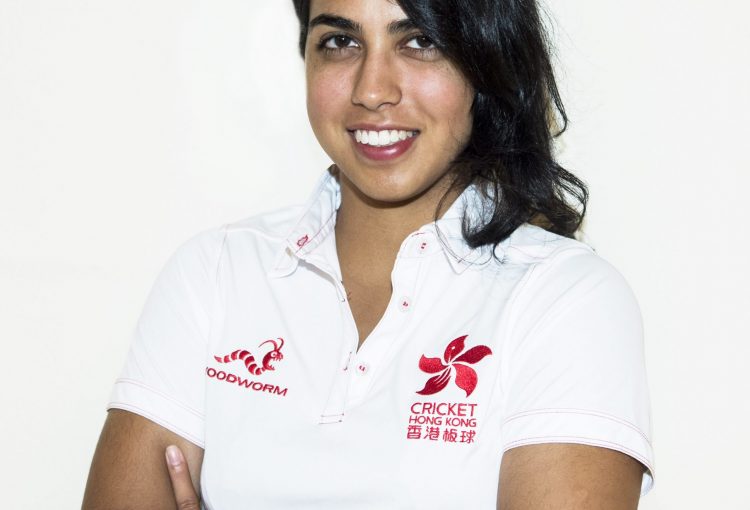
Photo from: HK CricketHow did you get start playing cricket?
I started with my brother when I was quite young. It was a “boy’s sport,” but because we used to do everything together, I used to go with him to various sports camps, including ones at the Indian Recreation Club. I loved playing cricket. But, because there were no other girls, I never really continued with it.
Then, when I was 11 years old my mother brought me to play on a girls’ team, which at the time was championed by Anita Miles who was a benefactor, promoter and patron of cricket for women in Hong Kong. Honestly, I have so much gratitude for her because she pulled together many of us who are on the team now; she organized things for us; she knew how important it was for us and for girls in general. In particular she recognized the importance of the social aspect of the game.
Initially I played at club level, and when I was about 12 / 13 years old, I was selected to participate in an U19’s Tournament. It was the first time Hong Kong had participated in such a tournament, and all of us went to Chiang Mai to play.
How did you feel about being the only girl in cricket when you were first exposed to the sport?
I’ve always been quite competitive, even from a young age, and I never did think it was fair that boys were assumed to be better at sports. My brother is younger and at first I could beat him at sports. As he started getting stronger and faster, I still wouldn’t want him to beat me; I still wanted to be better than him!
I almost always took it as a challenge and would try to prove people wrong. That’s always been my attitude in sports, to show people what I can do.
How did the boys feel about you being the only girl?
Some guys, especially those on my team, would heckle me. They would say things like, “girls can’t catch.” If I messed up there was much more pressure on me because they were waiting to jump on it, and say things like, “that’s why girls can’t play.” It was quite horrible really, but it didn’t keep me down that much.
Having said that I don’t want to over generalise because there also had been some boys who were supportive of me. I think it’s quite dependent on personality.
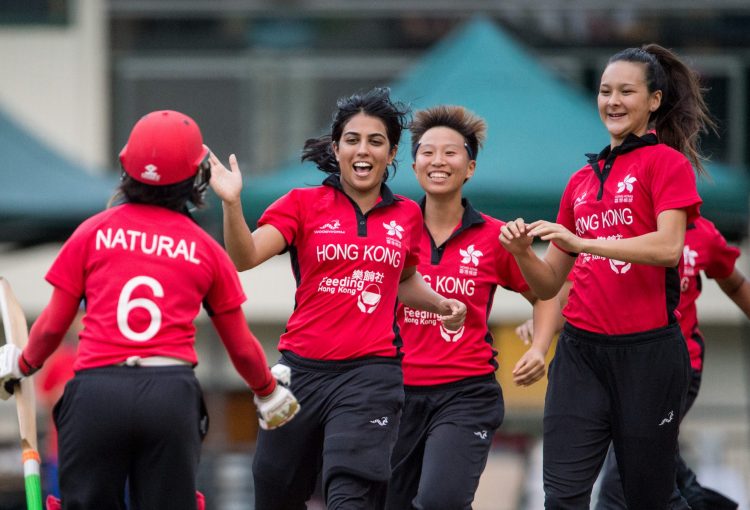
Photo by Panda Man / Takumi Photography. All rights reserved, not for commercial use.You mentioned that cricket is perceived to be a boys’ sport, even though women do play. Why do you think this perception exists?
Maybe there is some truth to it in that at the moment there are more boys than girls who play cricket. But I do think it’s mainly because of society. The fact that historically, girls didn’t play cricket, has maybe led to the slower uptake of the sport for women.
I remember when I was in school the boys and girls were separated and played different sports. While boys played sports such as football and cricket, we played sports such as netball. When you’re putting girls into those situations, you’re not giving them the opportunity to play certain sports. Then there are a lack of female adults who play such sports and if they don’t play, why would younger girls play?
It is slowly changing but I suppose what I’m touching on is the importance of role models. If girls don’t have female role models to look up to, if they don’t see women who play sports, they don’t see it as being something they would do. When you’re a kid, many things imperceptibly influence you; even when you’re not aware, a lot of what you see and observe shapes your path. It’s not conscious.
What are the challenges with there being few women role models in sports?
For three years while I was university I also played water polo- another male-dominated sport! Girls didn’t think to even play because they didn’t know anyone else playing. There was also a perception that water polo is an extremely aggressive sport and girls who play are manly. And because of this many girls didn’t want to go into water polo because they didn’t want to be perceived like that.
Another challenge I find is within Asian culture. Moms and others tell us: “you don’t want to have broad shoulders,” or “you don’t want to look like a man.” The number of times I have been told by my grandmother, “oh don’t want to get dark if you’re in the sun too much.” But I feel that times have changed- a girl’s sole aim in life isn’t to look pretty! If these “role models” are telling you these things, you also learn that these behaviours are normal.
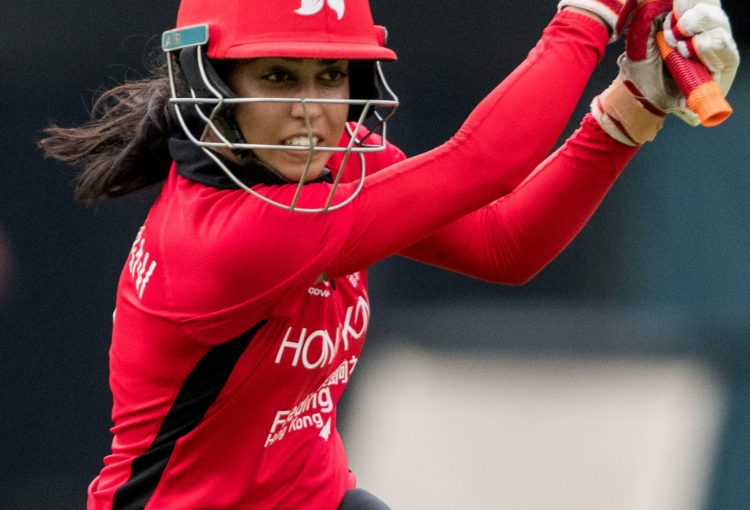
Photo by Panda Man / Takumi Photography. All rights reserved, not for commercial use.What was the experience like to play on the Under-19 team?
That was my first time representing my country and is still my favourite tournament because it was my first glimpse into what I could have in terms of being a professional athlete, even though we weren’t really paid or anything like that. Our coach at the time, Charlie Burke, emphasised the importance of professionalism; to wear our country’s shirt with pride and that when we’re speaking to people we’re not just representing ourselves but also our country. It was incredible. The friendships I made were invaluable because we were together for two weeks; we did everything together and became so close.
Did playing Under-19 ever feel too serious or tough for you?
Not really. It was obviously difficult to balance studies with cricket. We trained in the evenings, which ramped up when we had upcoming competitions. But I found it quite manageable and I was able to get good grades.
The hardest were actually tours, when we had to go away for two weeks at a time. They tried to schedule tours around the academic calendar but it didn’t always align. I remember one year we had these massive student elections and I missed all of them because I was on tour.
Of course there were other trade-offs, for example, I didn’t see my school friends as much during lunch because I would have to study, as I knew I wouldn’t have the time after school.
You had quite a regimented schedule as a high school student. How do you think that’s helped you? What do you think you’ve learned from that period of time?
I have no regrets and I loved everything I did and the people I did it with.
Playing cricket has helped me massively. For one, it’s taught me discipline. After school if I was tired I sometimes wouldn’t feel like going to practice, but I still knew I needed to push through. I wanted to be reliable because I knew my teammates were counting on me to come to trainings. It’s a sporting mentality that you’re all training towards something together. I’ve learned to be dependable.
And now that I’m entering the corporate world, sports have taught me to be better at planning and being focused. I used to be all over the place, but now when I sit down, I work 100%. I’ve become more efficient with my time because I’m used to having a short period of time to do things. Now I find myself with more time to get more done and I feel more productive.
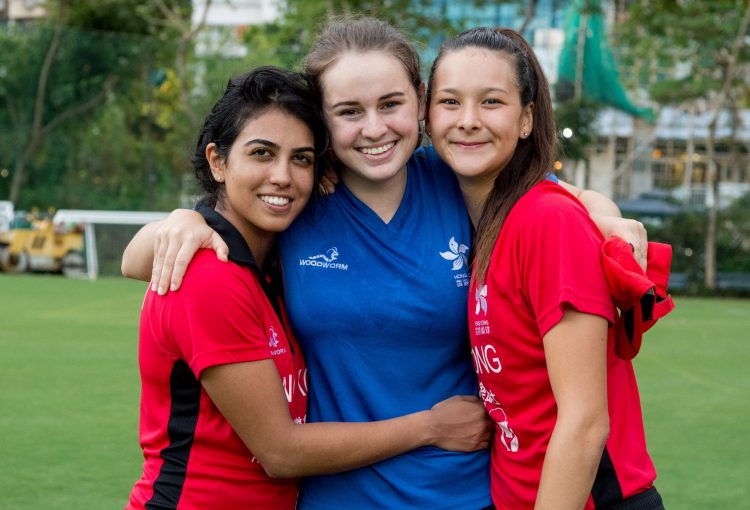
Photo by Panda Man / Takumi Photography. All rights reserved, not for commercial use.Why have sports mattered to you?
There are quite a few reasons: from a health perspective and as a stress reliever. If I felt upset about something, I would go to sports and forget about it because there were other people for me to talk to. Playing sports was also mentally tiring for me so I didn’t over-worry about things. Of course the release of endorphins from sports really pumped me up and gave me energy.
The social aspect of sports is really important. Sports brings together a group of people who might not otherwise have met, who might be different to each other, have different circumstances and are of different ages. Sometimes people tend to stick with the same friendship groups. Through cricket I have met many different people. For example half of our current national team are local players, and I might never have had a chance to meet them because I’m of Indian-ethnicity and went to international school in Hong Kong. I have friends who are moms and they are my friends, not my mother’s friends. Sports give you a diversity of friendships. That is so important.
Can you share a bit more about that experience to learn cricket with you mother?
My mother and I have always been close. To share a sport with her and to have the same friends when we started was quite special and I really enjoyed it. It was a good idea because our weekends were spent together. And yes there were times when as a kid I did feel embarrassed, and think, “mom why would you say that,” or “mom what are you doing,” or if she mis-fielded a ball and I would feel embarrassed. At the same time it was so much fun and such a good experience.
She has stopped playing cricket since, but we have many memories and photos of us playing together. My mom is still very supportive of me playing cricket and will come and watch me play. In fact, my mom has always been one of my biggest supporters. She’s been a critique for me in a good way. When she was playing with me she was learning the sport at the same time I was so it was like having an extra coach. It was comforting to have someone I know teaching me. And of course, as a kid, cricket can be quite scary. Imagine having a ball hurled at you – and it hurts to be hit by one. Having my mom there to be encouraging helped as well.
You have a contract to start at a law firm in London. You were able to defer it to start in Autumn 2018 so that you can continue to represent Hong Kong in cricket. Can you share a bit about that experience? How does that make you feel?
The law firm originally recruited me to start in September 2017, and I was quite amazed that they allowed me to defer when I asked.
Obviously it’s an incredible feeling and it means that when I do start, I already feel I want to work extra hard because they’ve allowed me to realize this one thing I want to do. I want to show I can work hard for them, as a way to thank them and show my appreciation. I feel that if the law firm allows me to balance my sporting career with work, I want to give even more back to them.
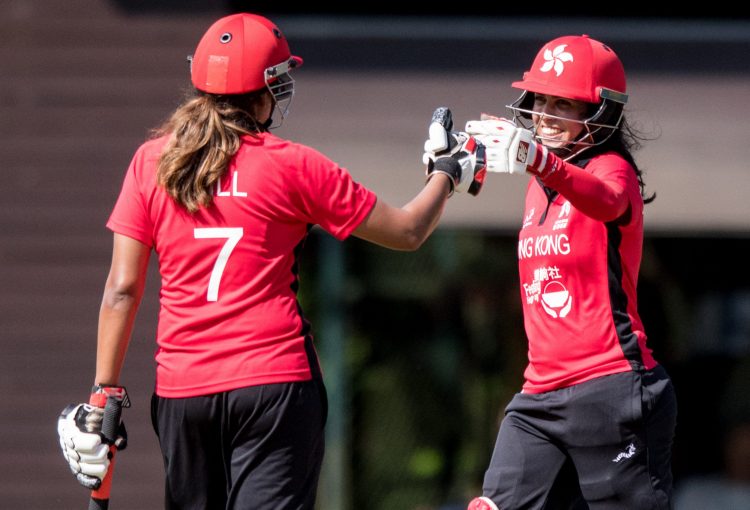
Photo by Panda Man / Takumi Photography. All rights reserved, not for commercial use.*******
If you’re a mother and interested in participating in some sports with your daughter, check out our upcoming Mothers and Daughters Sports Day, “WISE Start With Sports” on 10 March 2018 from 9 – 11am at the AIA Vitality Park by The Observation Wheel!
